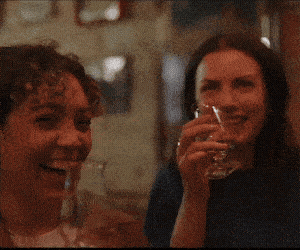
A FORMER general manager at University Hospital Limerick (UHL), who was working in an “executive on call” shift on the night Aoife Johnston was brought to the hospital suffering with life threatening sepsis, told the girl’s inquest she had “no (executive) powers” to compel staff to do what she asked.
Giving evidence Wednesday, Fiona Steed, who currently works as a policy advisor at the Department of Health, broke down several times and apologised to Aoife’s family for the circumstances of her her death.
She said she “wrongly and regrettably presumed” that advice she had passed to staff on the night that Aoife was brought in, to try to alleviate overcrowding at the hospital, had been immediately acted upon, when in fact it had not.
Aoife arrived at UHL on December 17th, 2022, along with a GP letter querying sepsis, which according to hospital protocols, requires sepsis patients to be examined by a doctor within 15 minutes.
However, Aoife was not triaged for an hour and 15 minutes; she was not examined by a doctor for 12 hours; and she was not given antibiotics, which the inquest heard would have saved her life, until 15 hours and 15 minutes after she had first presented at the hospital.
The antibiotics were readily available, but by the time they were given to Aoife, it was too late.
Ms Steed said her managerial role on the night, was that she was available to UHL staff by telephone “to provide support and advice”, but that it did not require her to attend the hospital in person.
Ms Steed said she received one telephone call at 10.33pm on the night from the hospital’s on-call assistant director of nursing, who was doing her rounds, and was informed that there were 81 patients waiting to be seen in the Emergency Department (ED).
Ms Steed said Patricia Donovan also told her that the on-call ED consultant, Dr Jim Gray, and paediatric consultant had both declined a request by a clinical nurse manager to attend the ED to assist in alleviating patient overcrowding there.
The paediatric consultant did eventually arrive at the hospital and spent two hours helping to tackle the growing backlog of patients.
Ms Steed said she informed UHL’s clinical director of medicine (CDM) of the ED consultant’s refusal to attend, but she did not receive a response from the CDM until the following day.
Ms Steed alleged the CDM texted her back that “one person coming in (to the ed) wasn’t going to make a difference” to the overcrowding crisis.
Ms Steed said the words “emergency” “chaos” and “war-zone”, used by several nursing staff in their evidence to the inquest, were “not used” to her on the night Aoife presented at the hospital with life-threatening sepsis.
She said she was not made aware of Aoife’s presence at UHL until the following day, Sunday, December 18th.
She said that on this night she had advised the hospital that its surgical day ward be opened for seven beds; that ward 8b be used for four ED fracture patients; that four more ED patients be transferred to ward 3d; to use 6 vacant beds and surge, meaning to send ED patients on trollies to each ward, and to utilise vacant trollies from endoscopy or the cath lab.
Ms Steed said she was told the chief director of nursing had been informed of the overcrowding situation.
She repeated that she did not follow up with staff on Saturday night as she had “wrongly” presumed her advice would be followed.
However, she stressed her role was an advisory one and she could not order staff to make any clinical changes at the hospital.
She said she also “cannot compel consultants to attend” when they were asked and refused.
She said she had “escalated” the refusal of the consultants to clinical managers.
By 11.30am the day after Aoife arrived at the hospital there were 170 patients in the ED.
Ms Steed said she contacted the hospital’s chief clinical director about possibly cancelling scheduled surgeries and using Nenagh Hospital and St. John’s hospital, Limerick for surge capacity beds.
She said she also sought to have the hospital’s acute fracture unit opened up to alleviate the weekend overcrowding but “there was not available staff to attend the unit”.
She said she also messaged the chief radiology registrar regarding prioritizing CT scans for orthopaedic patients in order to escalate patent transfers out of the ED to Croom Orthopaedic Hospital hospital but “did not receive a reply”.
She said she maintained contact with hospital staff throughout the weekend and was only told about Aoife Johnston on Sunday.
She said she was informed Aoife had died and that she would need to attend “an unscheduled Serious Incident Management Team meeting asap”.
Under questioning from Damien Tansey, senior counsel and solicitor for the Johnston family, Ms Steed denied she had “executive” powers at UHL. She said decisions were made by managers in higher ranks.
Mr Tansey said the Johnston family were “extremely concerned and worried” that UHL staff were trying to “pass the buck” in respect of the circumstances of Aoife’s death.
Ciara Daly, barrister representing Ms Steed, said she rejected this and that the witness was fully cooperating with the inquest. Ms Daly asked coroner John McNamara that the comment be “struck from the record”.
Mr McNamara did not order it from the record but he asked Mr Tansey to “refrain” from repeating it.
Ms Steed said she fully accepts an unprecedented overcrowding emergency was unfolding in the ED on the night Aoife was brought in there, but she argued that “at the time I didn’t know”.
She said she was aware of the high patient numbers in the ED but she did not know how many were category 2 patients, dangerously ill patients, including Aoife.
She said the only time she might have been expected to be on site at UHL was in the event off a “major emergency” but she said that overcrowding “is not the criteria for a major emergency”.
Ms Steed said that the advice she had given, on the night Aoife was brought to the hospital, would have “taken 30 or 40 patients out of the ED”.
Only 12 patients were moved out of the ed on the night, the inquest heard.
Ms Steed agreed with Mr Tansey that whatever she did do (on the night) “didn’t help matters”.
She said the concerns she escalated to higher management about the two consultants refusing to attend the ED also “didn’t help”.
She agreed that despite her efforts to help the overcrowding crisis in the ED, “it got dramatically worse”.
Ms steed also agreed that overcrowding, staff deficits, inefficient patient flow and a lack of bed capacity had “adversely impacted” the functioning of the ED and the provision of safe care for patients.
“That was the situation at the time of this tragedy,” Mr Tansey put it to the witness.
Ms steed replied: “Yes”.
“And that was the situation long after this tragedy,” Mr Tansey continued.
“Yes”, Ms Steed said
Ms Steed wept as she told the inquest she had been haunted by Aoife’s death.
“I wont forget Aoife or her beautiful face,” she said weeping in the witness box.
At this point, Aoife’s sister Megan, became emotional and cried out, “No, we are the ones who have to go home without seeing Aoife again” and she leftthe courtroom.
The inquest continues tomorrow.


